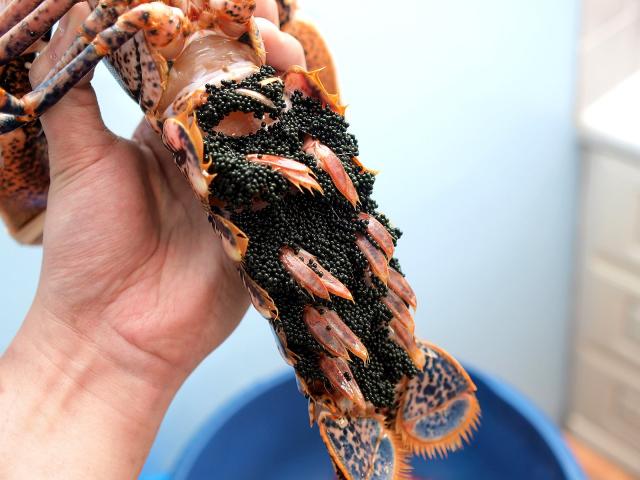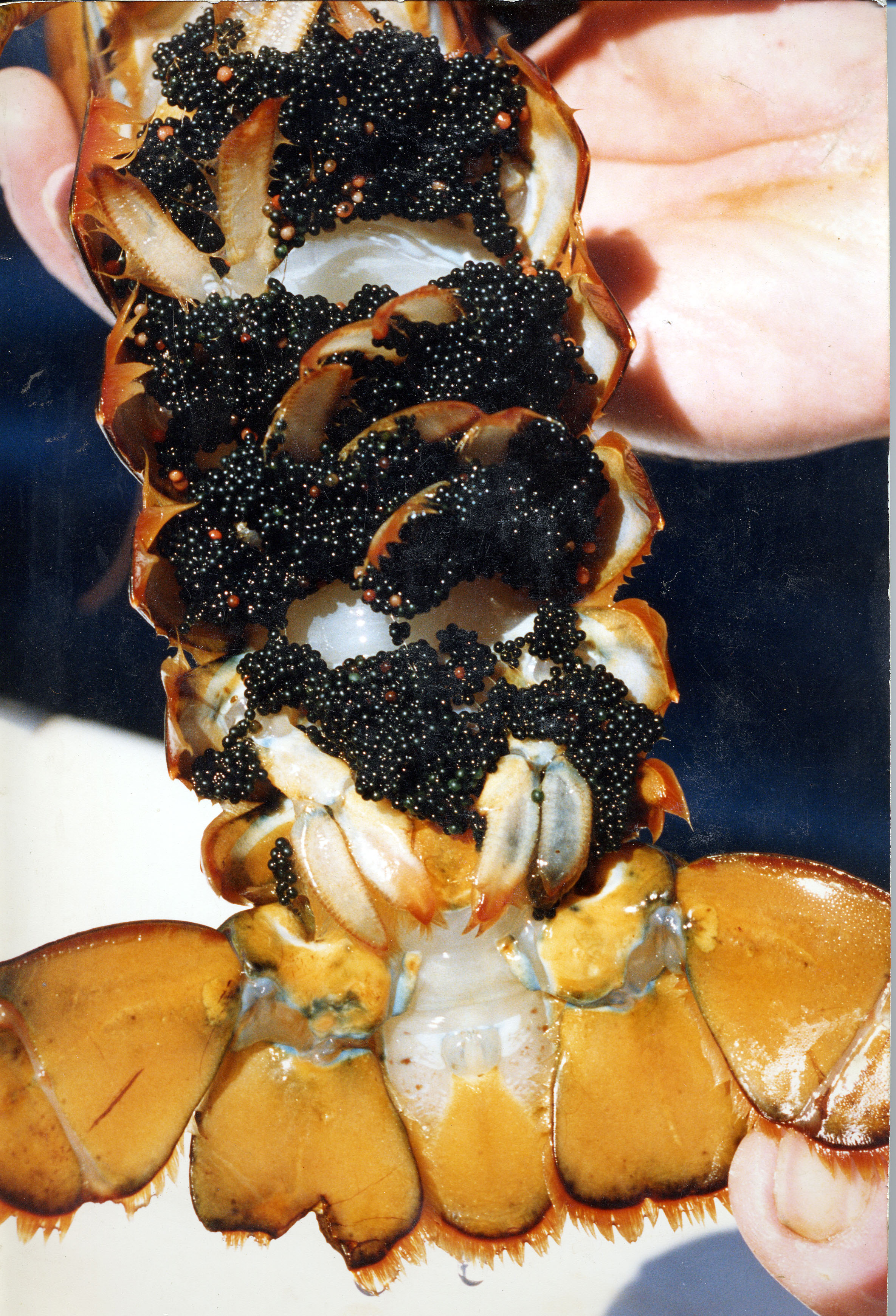Yes, people eat lobster eggs. These eggs, called roe, are considered a delicacy by many seafood enthusiasts.
Lobster eggs, often referred to as roe, are prized for their unique texture and flavor. Found inside female lobsters, these tiny, red eggs add a burst of oceanic taste to various dishes. Chefs incorporate roe in recipes ranging from sushi to gourmet sauces, enhancing culinary experiences.
Eating lobster eggs is common in coastal regions where fresh seafood is abundant. Seafood lovers appreciate the rich, briny notes that roe brings to their meals. Including lobster eggs in your diet can elevate your seafood cuisine, offering a taste of luxury and the sea. This delicacy is a must-try for anyone exploring gourmet seafood options.

Credit: www.reddit.com
Introduction To Lobster Eggs
Lobster eggs, often called roe, are tiny and red. These eggs are found inside female lobsters. Many people find them delicious and a rare treat. Chefs sometimes use lobster eggs in gourmet dishes. They add a unique flavor to sauces and soups. The texture of lobster roe is slightly crunchy. Some compare it to caviar. You can find lobster eggs in seafood markets. They are more common in coastal areas. Not everyone has tried them, but they are a delicacy for those who have.
People have eaten lobster eggs for centuries. In ancient times, coastal communities prized them. Fishermen would harvest lobsters and save the eggs. They used them in special meals. Today, the tradition continues. Many cultures include lobster eggs in their cuisine. Historical records show lobster eggs were once considered a luxury. They were often served to royalty and the wealthy. Over time, more people began to enjoy them. Now, anyone can taste this unique food.
Nutritional Value
Lobster eggs are rich in vitamins and minerals. They contain high levels of Vitamin B12. This vitamin is essential for brain health. Lobster eggs also have Vitamin A. This vitamin supports good vision and skin health. There are also small amounts of Vitamin D. This helps with calcium absorption and bone health.
Lobster eggs contain important minerals like zinc. Zinc helps with immune function. They also have copper and selenium. Copper supports the formation of red blood cells. Selenium acts as an antioxidant in the body.
Eating lobster eggs can improve brain health. They provide essential nutrients that support cognitive functions. Lobster eggs are also good for your skin and vision. They contain vitamins that help maintain healthy skin and eyes.
Lobster eggs can boost your immune system. The zinc and selenium in them help the body fight infections. They can also support bone health. The vitamins and minerals in lobster eggs strengthen bones.
Cultural Significance
Lobster eggs, also known as roe, hold cultural significance in many culinary traditions. They are considered a delicacy, offering a unique flavor and texture.
Regional Delicacies
Lobster eggs, often called roe, are a delicacy in many cultures. Coastal regions cherish these tiny, flavorful eggs. In some places, they are prized more than lobster meat. People enjoy the unique texture and taste. Fishermen consider them a special treat. Lobster eggs are often found in high-end restaurants.
Traditional Recipes
Chefs use lobster eggs in various traditional recipes. They are often added to sauces for extra richness. Some cultures mix them with butter for a luxurious spread. In certain regions, they are used in soups and stews. Lobster roe can also garnish sushi, adding a pop of color and flavor. These recipes celebrate the unique taste of the eggs. They highlight the cultural importance of this delicacy.

Credit: forums.egullet.org
Preparation Methods
Lobster eggs can be cooked in many ways. They can be boiled, steamed, or even fried. Boiling is the simplest method. Just add eggs to boiling water. Steaming helps retain more flavor. Frying gives them a unique texture and taste.
Serve lobster eggs with melted butter for extra flavor. They also go well with lemon slices. Some people like to add garlic sauce. Lobster eggs can be added to salads. They are also great in pasta dishes.
Taste And Texture
Lobster eggs, also known as roe, are unique in flavor. They have a delicate taste, somewhat briny. This makes them a special treat for seafood lovers. The texture is smooth yet slightly crunchy. This combination makes it appealing to many.
Lobster roe has a rich and buttery flavor. It is less fishy compared to other seafood eggs. The freshness of the roe enhances its taste. Many describe it as a blend of sea and sweetness.
| Type of Roe | Flavor | Texture |
|---|---|---|
| Lobster Roe | Rich and Buttery | Smooth, Slightly Crunchy |
| Salmon Roe | Salty and Bold | Firm and Juicy |
| Sturgeon Roe (Caviar) | Earthy and Nutty | Soft and Smooth |
Environmental Impact
Lobster eggs, also known as roe, are often consumed in various culinary dishes. Harvesting these eggs can impact lobster populations and marine ecosystems. Sustainable practices are essential to minimize environmental damage.
Sustainability
Lobster eggs, also known as roe, are often harvested. This can impact lobster populations. Sustainable fishing practices help protect these species. Fishermen must follow strict rules. These rules ensure lobsters can reproduce. Overfishing can harm the ecosystem.
Fishing Practices
Fishing practices affect the environment. Sustainable methods are important. Some fishermen use traps. Traps are less harmful than nets. Traps catch fewer non-target species. This helps keep the ocean balanced. Other practices include setting size limits. Only certain lobsters can be taken. This protects younger lobsters.
Legal Considerations
Laws vary by region regarding the consumption of lobster eggs. Some places strictly prohibit harvesting female lobsters with eggs. Always check local regulations before indulging.
Regulations
Many places have laws about lobster eggs. Some regions ban harvesting lobsters with eggs. This helps protect the lobster population. Fishermen must follow these rules. Breaking them can lead to fines. Always check local laws before collecting lobsters.
Consumer Awareness
Consumers should know about the rules on lobster eggs. Eating lobster eggs can be illegal in some areas. This protects the species and ensures sustainability. Many stores do not sell lobsters with eggs. They follow the laws and support conservation efforts. Always ask your seafood provider about their practices.

Credit: umaine.edu
Frequently Asked Questions
Can You Eat Lobster Eggs?
Yes, lobster eggs, also called roe, are edible and considered a delicacy.
What Do Lobster Eggs Taste Like?
Lobster eggs have a briny, slightly sweet flavor similar to the taste of the sea.
How Do You Cook Lobster Eggs?
Lobster eggs can be steamed, boiled, or eaten raw, often served with butter or lemon.
Are Lobster Eggs Healthy To Eat?
Yes, lobster eggs are rich in protein, omega-3 fatty acids, and essential nutrients.
Where Can You Find Lobster Eggs?
Lobster eggs are located under the lobster’s tail, attached to the swimmerets.
How Do You Store Lobster Eggs?
Store lobster eggs in the refrigerator, ideally in a sealed container, and consume within a few days.
Conclusion
Lobster eggs, also known as roe, offer a unique culinary experience. Many people enjoy their rich, briny flavor. These eggs can be a delicacy when prepared correctly. Whether you’re an adventurous eater or a seafood enthusiast, trying lobster eggs can be a delightful addition to your dining experience.

